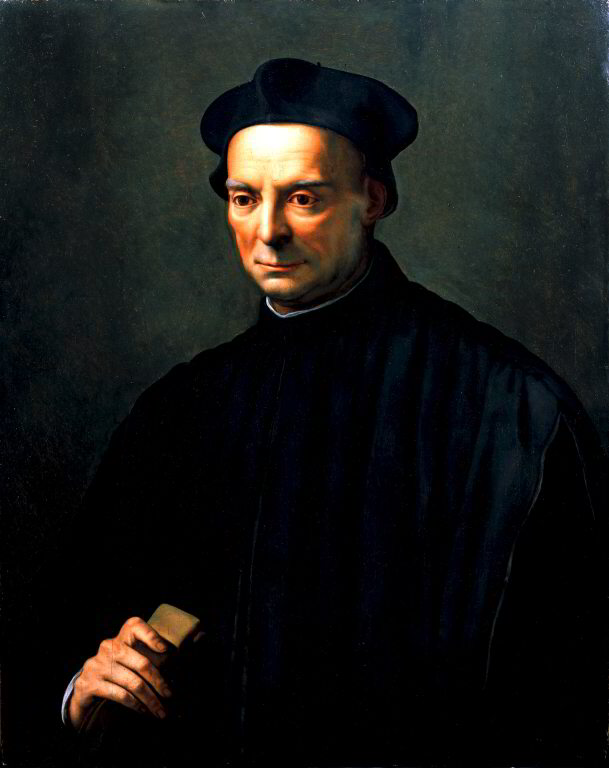Niccolo Machiavelli najznámejšie citáty
Niccolo Machiavelli Citáty o ľuďoch
„…v ľude je tým menej zbožnosti, čím bližšie k sídlu rímskej cirkvi býva.
Kniha I, Kapitola 12“
Potvrdené výroky, Vladár
Niccolo Machiavelli Citáty o zlu
Niccolo Machiavelli citáty a výroky
„Vladárovi nikdy nechýba legitímny dôvod na to, aby porušil svoj sľub.
Kapitola 18“
Potvrdené výroky, Vladár
„A preto všetci ozbrojení proroci zvíťazili a všetci neozbrojení proroci boli zničení.
Kapitola 6“
Potvrdené výroky, Vladár
„V politice, kde není odvolávacího soudu, soudí člověk podle výsledku.“
Varianta: V politike, kde nie je odvolávací súd, súdi človek podľa výsledku.
Niccolo Machiavelli: Citáty v angličtine
“He who builds on the people, builds on the mud.”
Zdroj: The Prince (1513), Ch. 9; translated by W. K. Marriott
“Nature creates few men brave, industry and training makes many.”
Zdroj: The Prince
“For one change always leaves a dovetail into which another will fit.”
Zdroj: The Prince
Zdroj: The Prince - Niccolo Machiavelli - Original Version
Varianta: It must be considered that there is nothing more difficult to carry out, nor more doubtful of success, nor more dangerous to handle, than to initiate a new order of things.
Zdroj: The Prince (1513), Ch. 6
Kontext: It ought to be remembered that there is nothing more difficult to take in hand, more perilous to conduct, or more uncertain in its success, than to take the lead in the introduction of a new order of things. Because the innovator has for enemies all those who have done well under the old conditions, and lukewarm defenders in those who may do well under the new. This coolness arises partly from fear of the opponents, who have the laws on their side, and partly from the incredulity of men, who do not readily believe in new things until they have had a long experience of them.
“Wars begin when you will, but they do not end when you please.”
Comincionsi le guerre quando altri vuole, ma non quando altri vuole si finiscono.
Variant translation: Wars are begun at will but not ended at will.
Book III, Chapter 7.
Florentine Histories (1526)
“The best possible fortress is—not to be hated by the people.”
Varianta: Variant translation: The best fortress which a prince can possess is the affection of his people.
Zdroj: The Prince (1513), Ch. 20: 'Are fortresses, and many other things to which princes often resort advantageous or hurtful?'
“It is the nature of men to be bound by the benefits they confer as much as by those they receive.”
Zdroj: The Prince (1513), Ch. 10; translated by W. K. Marriot
“Bad company will lead a man to the gallows!”
Le cattive compagnie conducono gli uomini alle forche.
Act IV, scene vi
The Mandrake (1524)
Book 1, Ch 44 (as translated by Julia Conaway Bondanella and Peter Bondanella)
Discourses on Livy (1517)
Book 1 Ch. 5 (as translated by Ninian Hill Thomson)
Discourses on Livy (1517)
Letter to Francesco Vettori http://www2.idehist.uu.se/distans/ilmh/Ren/flor-mach-lett-vettori.htm (10 December 1513), in James Atkinson (trans.), Prince Machiavelli (1976), p. 19
Book 1, Ch. 3 Variant portion: Whoever desires to found a state and give it laws, must start with assuming that all men are bad and ever ready to display their vicious nature, whenever they may find occasion for it.
Discourses on Livy (1517)
Book V, Chapter 1 http://www.readprint.com/chapter-7136/Niccolo-Machiavelli
Florentine Histories (1526)
“Fear of evil is greater than the evil itself.”
Sono maggiori li spaventi ch'e mali.
Act III, scene xi
The Mandrake (1524)
This account of Machiavelli's """"Dream"""" was not published until a century after his death, in Etienne Binet's Du salut d'Origene (1629).
There is an earlier but more oblique reference in a letter written by Giovambattista Busini in 1549: """"Upon falling ill, [Machiavelli] took his usual pills and, becoming weaker as the illness grew worse, told his famous dream to Filippo [Strozzi], Francesco del Nero, Iacopo Nardi and others, and then reluctantly died, telling jokes to the last."""".
The """"Dream"""" is commonly condensed into a more pithy form, such as """"I desire to go to hell, and not to heaven. In the former place I shall enjoy the company of popes, kings, and princes, while in the latter are only beggars, monks, hermits, and apostles"""".
Disputed
